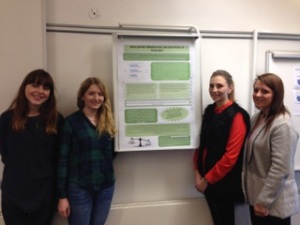by Isabelle Perez
The rising prevalence of mental illness is a growing concern for societies worldwide and access to mental health care is one of the top public health priorities in Scotland, as in many countries. In addition, as more and more people migrate and settle or take refuge in countries with a dominant language other than their own, the need for interpreting/cultural mediation in mental health care settings is also on the increase.
The research project on Access to Mental Health Care for Linguistically and Culturally Diverse Patients, supported by the Scottish Universities Insight Institute (SUII), is led by the Centre for Translation & Interpreting Studies in Scotland (CTISS), based at Heriot-Watt University, in collaboration with the University of Strathclyde, home to the Centre for Health Policy; the Psychiatric Care Unit, at St John’s Hospital, Livingston; and the Mental Welfare Commission for Scotland.
The aim of the project is to bring together mental health practitioners, interpreters, health care administrators, policy makers and academics to discuss the most salient care provision issues with the goal of understanding systemic difficulties and enhancing access to services.
A one-day research seminar will take place on Thursday 9 April at the SUII premises in Glasgow. A multidisciplinary group of international experts from Australia, Canada, China, South Africa, Sweden, the Netherlands, the UK and the US will discuss and scope, from their respective viewpoints, current issues faced in the provision of mental health care to linguistically and culturally diverse patients.
The same group of international experts will contribute to a linked open seminar with the wider stakeholder community to be held on the morning of Friday 10 April at the Riccarton campus of Heriot-Watt University, in Edinburgh. This seminar aims to extend the discussion from research to application by creating an opportunity to share experiences and examples of good practice from around the world.
For practical information and to register for either or both events, please visit the project webpage.
For further details please contact Professor Isabelle Perez, Languages & Intercultural Studies (LINCS).


